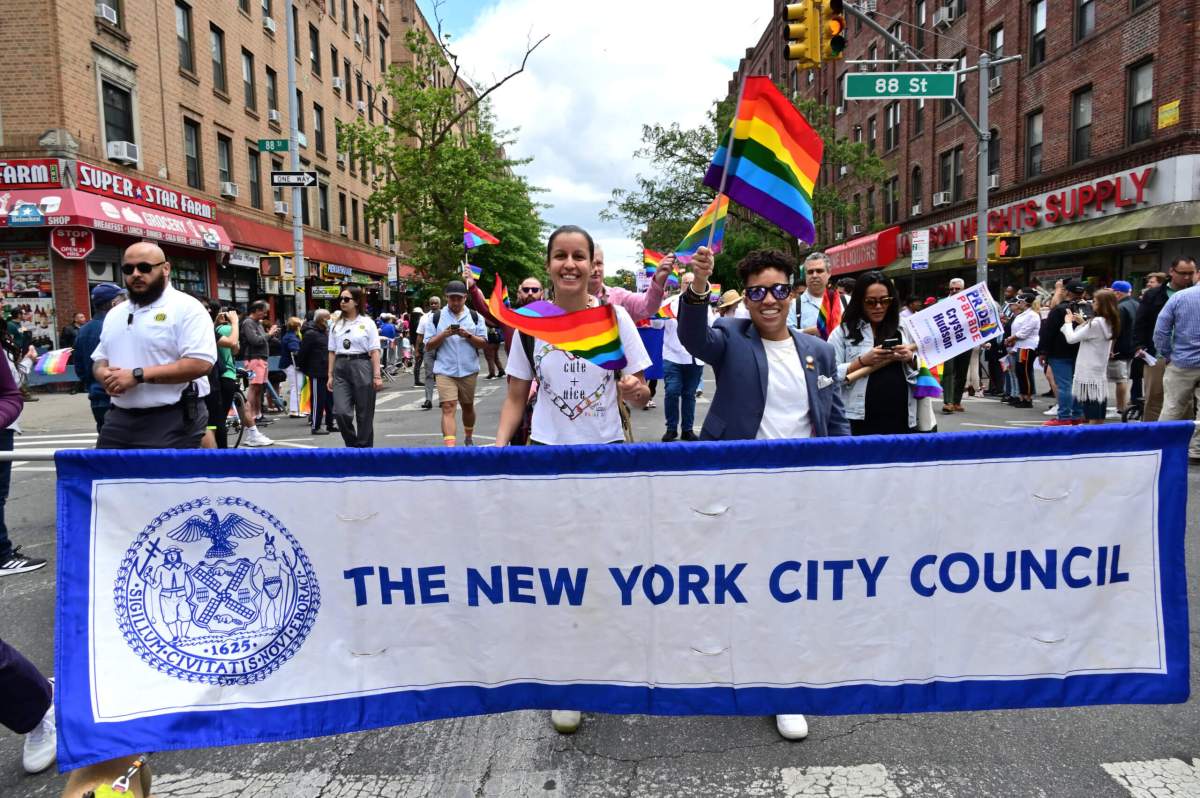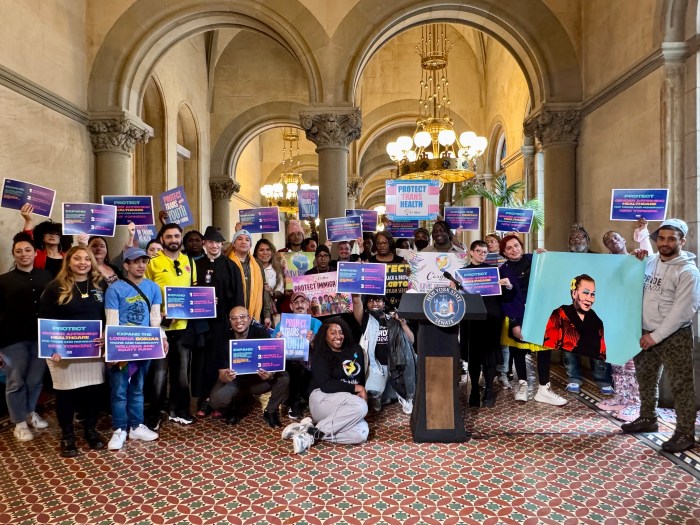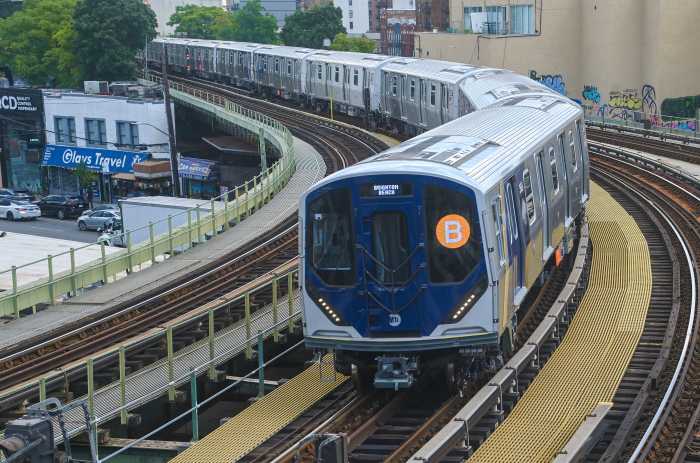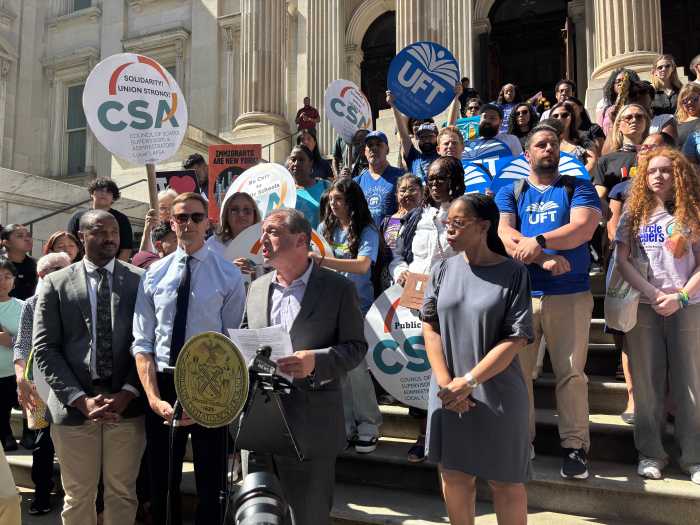Some members of the New York City Council are proposing legislation to establish protections for sex workers and steer resources to organizations serving them.
The bill, which was officially introduced on June 8 following the release of the LGBTQIA+ Caucus’ new comprehensive policy platform, would create a program to award grants to community groups working with sex workers, establish a board to support sex workers and inform them of their rights in the workplace, ban housing discrimination based on whether a prospective tenant has engaged in sex work, and more.
The bill was announced by the co-chairs of the City Council’s LGBTQIA+ Caucus — Tiffany Cabán of Queens and Crystal Hudson of Brooklyn — along with Public Advocate Jumaane Williams and Queens Councilmember Amanda Farias, who are also sponsoring it.
The legislation marks the latest effort to bring legislative protections to sex workers in New York. A bill to comprehensively decriminalize sex work has notably failed to advance in the State Legislature since it was first introduced four years ago.
“In places like Australia and New Zealand, governments have taken this politically thorny issue and established smart, compassionate, evidence-based and human rights-affirming legal frameworks around sex work, and it is time for us to take a first step in the same direction,” Cabán said in a written statement. “It’s time to provide for the rights, protection, and economic security of some of our most marginalized, most criminalized, most disrespected neighbors: New Yorkers who engage in sex work.”
Hudson said the legislation is a prerequisite to “ensuring equity, safety, and just treatment under the law for all New Yorkers, especially those at the margins of our communities.”
“This piece of legislation is our opportunity to reshape a debate where the prevailing and erroneous judgment has been one of criminalization and ostracism,” Hudson said in a written statement. “With Int. 1068, we are affirming human and legal rights in our beloved city, and it is well past time we do so.”
Elisa Crespo, who leads the statewide LGBTQ group known as New Pride Agenda, said the organization is encouraged by the bill.
“While we understand there is more work to be done, there are important provisions in this bill, such as amending the Housing subdivision of the admin code to make clear that landlords cannot discriminate against current or former sex workers in renting decisions,” Crespo said. “As our City grapples with a housing crisis, the Sex Worker Protection Bill will take one small step towards ensuring New Yorkers — regardless of their profession of choice — will have access to housing. We look forward to working with our community partners and the Council to continue advancing policy that protects vulnerable communities, including individuals in the sex trades.”
The movement to decriminalize sex work made progress in New York in 2019 when advocates — led in large part by the DecrimNY Coalition — held many rallies and sought to educate the general population in a bid to dispel stigma surrounding sex work. In the two years that followed, tangible gains were made in the State Legislature, including the passage of the START Act, which allowed people to vacate convictions stemming from crimes that were committed as a result of sex trafficking, labor trafficking, and other forms of trafficking. Among other legislative victories included the successful legislative campaign to repeal a loitering law known as a ban on “walking while trans” because law enforcement officers disproportionately targeted sex trans people for baseless reasons.
However, the comprehensive decriminalization bill — dubbed the Stop Violence in the Sex Trades Act — has not enjoyed the same support. The state bill, which was reintroduced this year, is led in the lower chamber by Assemblymember Chantel Jackson of the Bronx and in the upper house by State Senator Julia Salazar of Brooklyn.


































